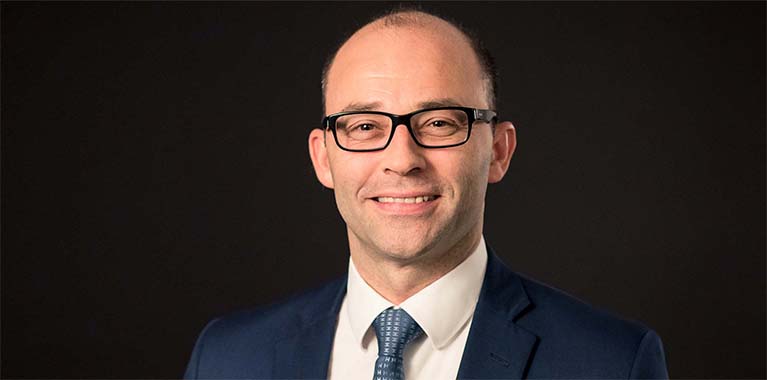When is an employer responsible for employees’ conduct outside the office?

This is a notoriously tricky question which employers are increasingly having to grapple with. A recent case, in which an employer was found vicariously liable for the actions of one of its employees following a work Christmas party, acts as a stark reminder about this difficult issue. In this alert we consider practical steps employers can take to best protect their employees as well as protecting themselves from being vicariously liable for employees' inappropriate conduct.
When is an act considered “in the course of employment”?
In this recent case, the Employment Tribunal found the employer vicariously liable for the sexual harassment of an employee by a Site Manager. This included attempting to kiss the employee whilst travelling in a taxi after the company’s Christmas party to the hotel at which the employee was staying; raping the employee in her hotel room and attempting to telephone and/or message the employee a few weeks after the event.
At first glance, many may think that because these shocking events took place outside the workplace (not during working hours) and after the Christmas party (rather than during it) that the employer would not be liable. However, a key aspect an Employment Tribunal will look at in such cases is whether the acts were done “in the course of employment” and this is much broader than may be expected.
In determining this the Employment Tribunal will look at the specific factual circumstances and consider several key questions such as:
- Whether the acts took place in the workplace or an extension of the workplace.
- Whether the acts took place during working time or outside normal working hours.
- Whether the perpetrator used equipment provided by the employer (for example, in this case, whether the taxi and hotel room were paid for by the employer or the Site Manager used a work phone to contact the employee).
- The nature of the acts and their nexus with the perpetrator's employment.
In this case, through applying the specific facts, the Employment Tribunal determined that the acts were done in the course of employment and that the employer had failed to discharge its responsibilities to protect the employee.
This leads to the more general question - what can employers do to best protect themselves and their employees?
What practical steps can employers take?
Appropriate and regular conduct training and up to date policies…and keep them refreshed!
- Employers must ensure that they clearly set out their expectations regarding appropriate conduct and the importance of calling-out inappropriate behaviour and encouraging colleagues to speak-up. This can be done by providing regular training sessions for the entire workforce and refreshing it every 18-24 months to ensure it stays up to date, pervades the Company's values and reinforces the message. The training should also be mandatory for new joiners as part of their induction programme.
- Employers should reinforce expectations, particularly before work social events to ensure the company stance on inappropriate behaviour and sexual harassment (or any other inappropriate conduct) is clear to all employees – zero tolerance of bad conduct. Employees may feel more liberated at social events outside of the office and forget about company standards and expectations and so it will be helpful to send a reminder ahead of the events as to what will and will not be tolerated.
- Set the tone from the top. Management should be setting an example of appropriate conduct and support a speak-up environment. Employers can consider running a separate managerial session on appropriate conduct outlining their obligations from both an individual and company perspective.
- Ensuring that the company also has robust, and up to date, policies in place (i.e. anti-harassment and bullying policies) to underpin this training.
Deal appropriately with any complaints
- Employers must ensure that they deal with any complaints appropriately, promptly and fairly, following procedures, taking allegations seriously and carrying out thorough investigations. Failure to address claims can have negative consequences for employers, both in the form of financial penalties and reputational damage.
- For employers in regulated industries, they should keep their regulatory obligations at the forefront of their considerations. By reporting relevant incidents, employers can comply with their own obligations, protect their reputation, and play a part in upholding the public confidence in these professions.
- Employers should also signpost procedures for employees who feel they have been a victim of harassment – who can they speak to/how should they report an incident? This is a crucial factor in encouraging employees to speak-up and embedding that within an organisation's culture.
- Provide support to those impacted (e.g., counselling via the employee assistance programme, if you have one). There is no one size fits all.
Carefully plan events, take responsibility and appoint sober champions
- Alcohol can often become a focal point for work events and can fuel inappropriate conduct. Appointing a "sober champion" for such events (preferably someone senior who remains sober all night – it can be more than one) to oversee the event can help to reduce the risk of HR issues arising. The sober champion can try to ensure any potential misbehaviour is spotted and dealt with promptly and effectively before things escalate. The sober champion should be publicised widely before the event and employees should be encouraged to report any inappropriate conduct.
- Employers should also consider the location, type of event, whether there should be a start and finish time and ensuring sufficient soft drinks, water and food are available to help prevent employees getting too intoxicated. The Judgment in the case reported above reminds employers about their responsibilities for the health and safety of their employees, the relationship of trust and confidence and the importance of following any company policies – in this case the employer's policy claimed that "the personal safety of its staff was of paramount importance to the company".
- In this case there were many acts committed by the perpetrator throughout the event which were red flags and called out for someone to intervene. As the Judgment states, "The risk here was obvious, serious and immediate. The Site Manager represented a clear and present danger. He was drunk, had sexually assaulted a colleague at least twice, pinning her against a pillar during the latter assault, and had squared up to another colleague. The situation cried out for a decisive intervention".
- Have a plan with the organisers of the venue to ensure staff are not over-served alcohol and how they can report anything witnessed (these incidents are not always against colleagues they can be towards a third party's employees).
Next steps
We have a wealth of experience in supporting clients in these difficult situations, including with investigations and remedial action. We also offer training to clients about appropriate conduct in the workplace and reviewing related policies and procedures, so they remain current.
Please do get in touch with Paul Reeves or your usual Stephenson Harwood contact if you would like to discuss this further.



